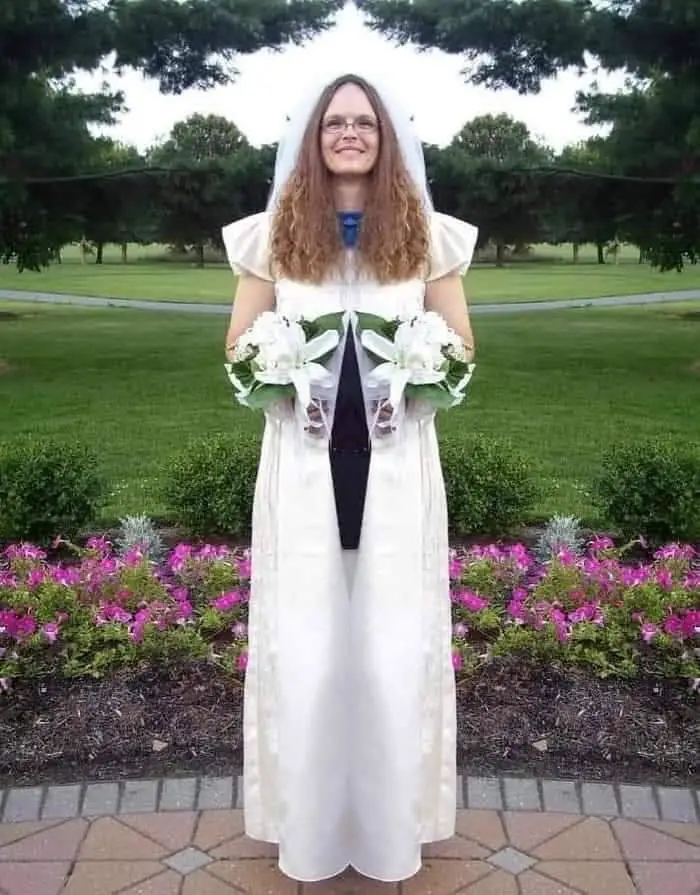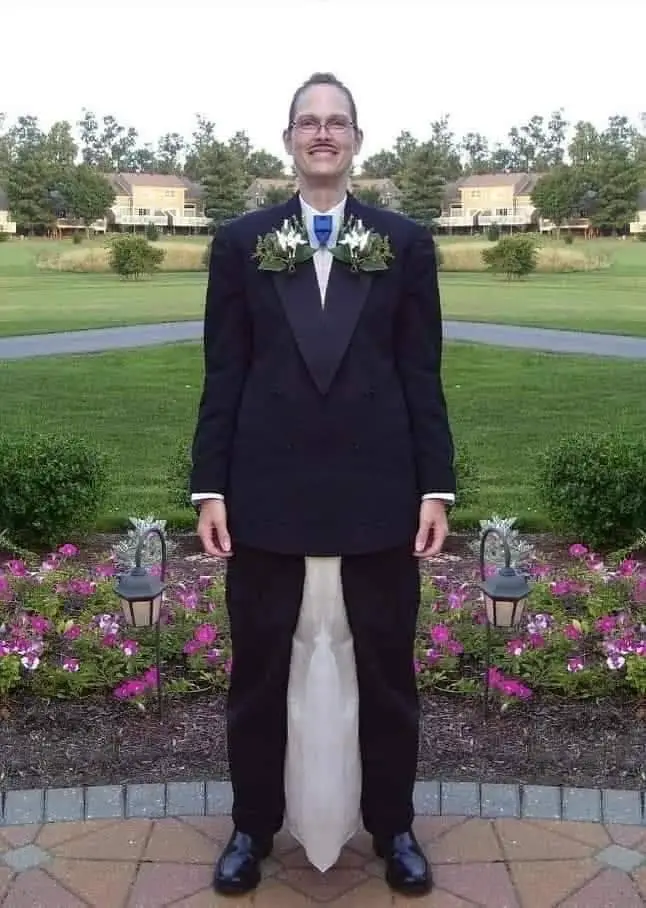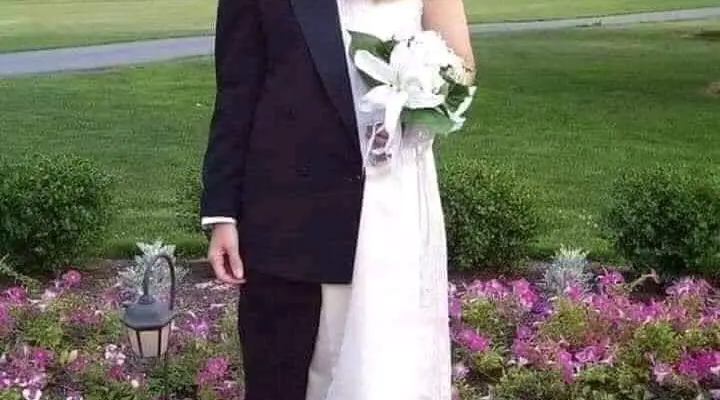In a society where marriage is often seen as the pinnacle of love and commitment, Antoine Cheval, a French man, took a bold and unconventional step—he married himself. After facing numerous heartbreaks and unreciprocated proposals, Antoine decided it was time to embrace the most important relationship he had: the one with himself. This act of “sologamy,” or self-marriage, is more than just a statement; it’s a growing trend among people who prioritize self-love, personal fulfillment, and independence over traditional romantic partnerships.
Who is Antoine Cheval? A Story of Self-Acceptance and Bold Choices
Antoine Cheval’s journey to self-marriage didn’t happen overnight. A Frenchman who had long struggled with relationships, Cheval found himself repeatedly rejected in love, and his proposals were often left unanswered. After years of heartache, Antoine chose to redefine his outlook on love. Rather than waiting for someone to reciprocate his feelings, he decided to honor the most enduring relationship he had—his relationship with himself. Antoine’s self-marriage included all the familiar wedding elements: vows, guests, and even a celebratory reception, as he publicly committed to loving himself fully and unapologetically.
Antoine’s journey of self-marriage has become a symbolic gesture, challenging societal norms and inspiring others who may feel they’re “not enough” without a partner. His message is clear: sometimes, the most profound love story is the one you share with yourself.
Understanding Sologamy: What Does It Mean to Marry Yourself?
So, what exactly is sologamy? Sologamy, also known as self-marriage or autogamy, is the act of marrying oneself as a declaration of self-love and commitment. While it doesn’t carry legal recognition or traditional marital benefits, sologamy holds symbolic weight. For those who practice it, sologamy is a powerful affirmation of self-worth, resilience, and independence. It’s a personal commitment to prioritize one’s happiness, mental health, and self-care, free from the societal expectations tied to conventional marriage.
Critics argue that sologamy lacks the legitimacy of traditional marriage, questioning its real impact. But supporters believe it’s a form of self-empowerment, a radical act of choosing oneself over societal norms. By marrying themselves, individuals like Antoine Cheval send a message: love, respect, and happiness can be cultivated from within.
The Ceremony of Self-Marriage: How Does It Look?
Self-marriage ceremonies often resemble traditional weddings. They may include vows, a formal celebration, a reception, and guests who come to support the “bride” or “groom” in this unique commitment. Some people even prepare for their self-marriage with counseling or self-reflection programs, aiming to solidify their personal values and emotional resilience.
For Antoine Cheval, his self-marriage ceremony was an opportunity to declare his love and dedication to himself publicly. And while sologamy is often seen among affluent women, the trend is by no means limited by gender, age, or social class. People from diverse backgrounds choose self-marriage as a means to honor themselves, proving that self-love knows no boundaries.

Notable Cases of Sologamy: Embracing Self-Love Across the Globe
Antoine Cheval isn’t alone in choosing the path of self-marriage. Sologamy is becoming more popular, with notable cases across the world that have garnered attention and sparked conversation.
- Sophie Tanner (United Kingdom, 2014)
In 2014, British photographer Sophie Tanner made headlines by marrying herself in a ceremony attended by friends and family. Tanner celebrated herself as a woman independent of external validation, reinforcing that self-love deserves celebration just as much as traditional romantic love. - Laura Mesi (Italy, 2017)
Italian fitness trainer Laura Mesi also chose sologamy, celebrating her commitment to herself after a difficult divorce. Her self-marriage was a powerful act of reclamation, a reminder that personal worth isn’t dependent on relationship status but on self-respect. - Kshama Bindu (India, 2022)
Kshama Bindu, from Gujarat, India, became the first Indian to marry herself in a traditional Hindu ceremony. Her sologamy included cultural rituals, emphasizing her pride in her identity as both a woman and an individual. Bindu explained her decision as a means to enjoy the joy of being a bride without the societal expectations of being a wife.
These cases show that sologamy is a global trend, bridging cultural, social, and gender divides. It’s an expression of independence and a message to society that individuals can be complete, whole, and happy without romantic partnerships.
The Movement of Self-Marriage: Challenging Norms and Embracing Self-Love
Self-marriage is more than a symbolic act; it challenges deeply rooted societal norms about relationships and personal value. At its core, sologamy represents self-acceptance, emotional independence, and a willingness to find fulfillment on one’s terms. It disrupts traditional narratives that often place marriage as the pinnacle of personal success, reminding us that love doesn’t need a partner to be meaningful.

For people like Antoine Cheval and others who embrace sologamy, the choice to marry oneself serves as a radical affirmation of personal worth. Their stories convey the message that one can be both single and fulfilled, challenging the notion that happiness requires romantic companionship. Sologamy is a reminder that self-respect and self-love are equally valid forms of commitment.
Antoine Cheval’s Legacy and the Power of Self-Love
Antoine Cheval’s decision to marry himself has inspired countless individuals to rethink the way they perceive love and relationships. His choice challenges society to move beyond traditional views of marriage and embrace a more inclusive understanding of commitment. By prioritizing himself, Antoine has sent a message that resonates: true happiness begins with self-acceptance and self-respect.
In a world where external validation often drives personal worth, Antoine’s story emphasizes the importance of inner strength and self-assurance. He shows us that while romantic relationships can be fulfilling, self-love is foundational and unshakeable. For those willing to embrace it, sologamy is a pathway to greater confidence, resilience, and self-worth.
Conclusion: Celebrating the Choice to Love Oneself
Antoine Cheval’s self-marriage may seem unconventional, but it offers a powerful lesson on the value of self-love. His decision to marry himself, after enduring numerous rejections, highlights the importance of choosing oneself in a world that often values external validation. Sologamy, while not for everyone, is a meaningful act of personal empowerment for those who pursue it. It’s a reminder that each individual has the power to define love and commitment in their way.
So, whether you view sologamy as a trend or a movement, it’s clear that the choice to love oneself is a radical act worth celebrating. Antoine’s story, along with those of others who have chosen this path, invites us to consider: what if the most significant commitment we can make is the one to ourselves?



